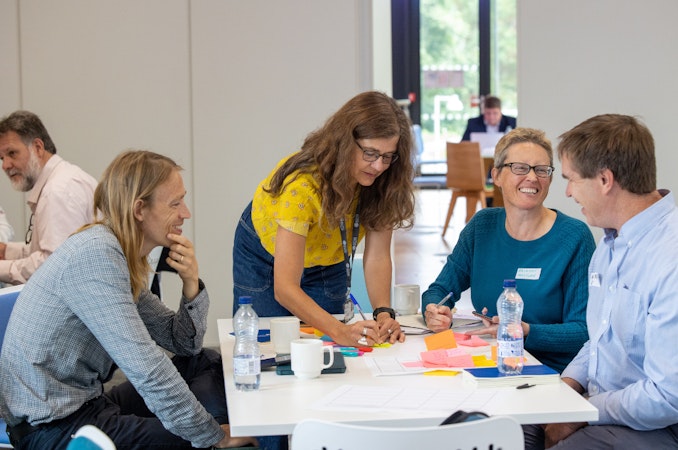We are delighted to welcome 11 new EET Scholars and five university partners to our EET Partner Network. With research interests spanning from education to conservation and human health, they showcase how evolution-based reasoning and environmental systems thinking can help address some of today’s most pressing problems.
Through our EET Scholarships programme, we aim to support exceptional postgraduate students to gain research and fieldwork experience, as well as science communication skills.
We asked the scholars to introduce themselves, you can read more about their work by following the links to their profile pages.
Plant disease control
Joss Etty (joint PhD Milner Centre for Evolution and Royal Botanic Gardens, Kew) studies the antibiotic properties of fungi living inside plants to understand how evolution has shaped plant disease control.
Applied animal welfare
Harry Gill (PhD, Manchester Metropolitan University) investigates our ability to perceive the motion of canids (such as domestic dogs, foxes and wolves) during walking, to help identify abnormalities and improve applied animal welfare.
The evolution of vocal learning
Warren Horrod-Wilson (PhD, Royal Holloway, University of London) investigates song learning in birds to answer fundamental questions in the evolution of vocal learning, human language and cultural evolution.
Improving our understanding of same-sex sexual behaviour
Chloe Coxshall and Adam Kissai (PhD, Imperial College London) work on a genetic and behavioural study of primates to unravel the evolutionary foundations of same-sex sexual behaviour.
Evolutionary thinking in medicine
Sofia Radrizzani (joint PhD Milner Centre for Evolution and Milner Therapeutics Institute) aims to apply evolutionary science and the latest Artificial Intelligence techniques to address a key question in human healthcare: can we predict which synonymous mutations will cause disease?
Gaining control over cancer
Linran Wang (PhD, University College London) investigates how our immunity works against cancer and how cancer evolves to escape immunity, as part of an exciting collaboration between UCL’s Department of Infection and the UCL Cancer Institute.
Accelerating nature-based recovery
Joshua Davis (PhD, Countryside and Community Research Institute, University of Gloucestershire) investigates the skills and learning pathways that practitioners require in order to successfully plan and implement ambitious land-management strategies.
Citizen science for nature-based recovery
Rhian Brimble and Tamara White (MSc, Countryside and Community Research Institute, University of Gloucestershire) explore how citizen science tools and technologies can be used to inform landscape-scale nature-based recovery projects, including a citizen science ‘how to’ best practice guide.
Better science education
Bethany Teale (PhD, Milner Centre for Evolution) explores the benefits of bringing experimental evolution in the classroom to improve science education by encouraging students to perform their own practical investigations.


